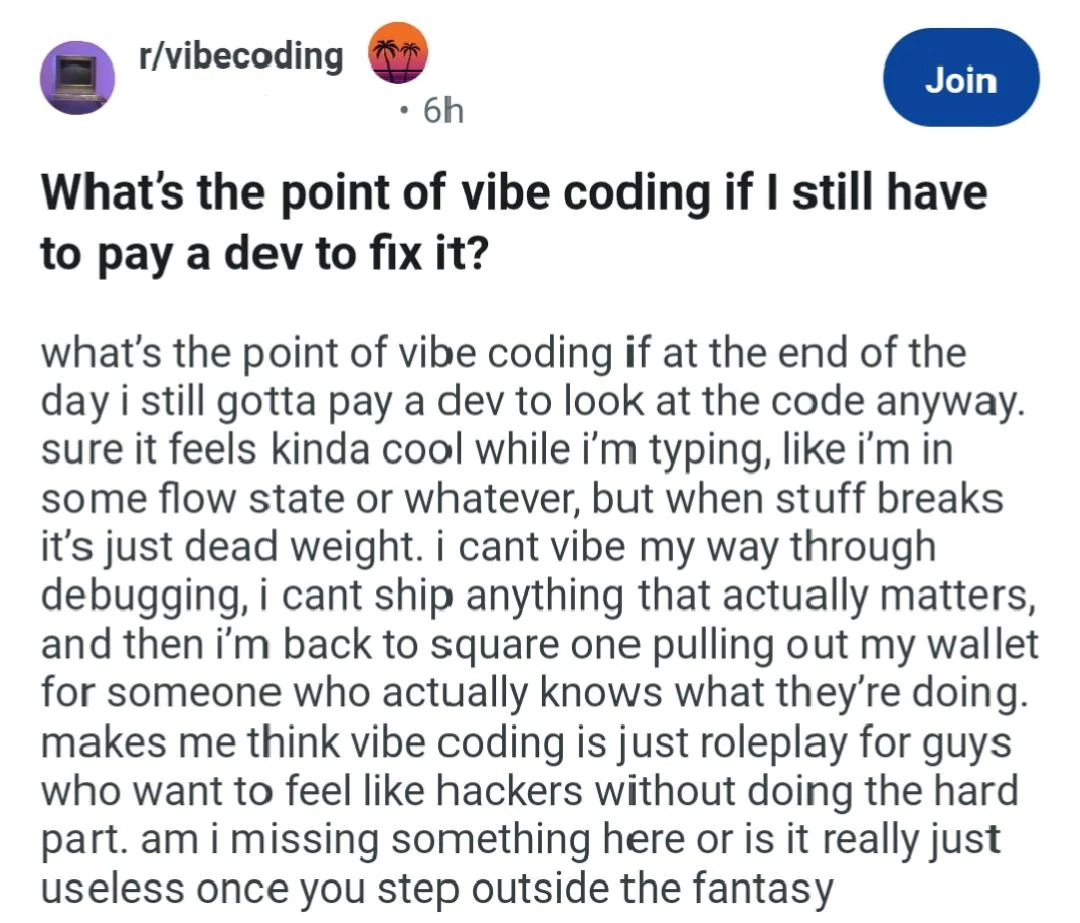As a software developer, I've found some free LLMs to provide productivity boosts. It is a fairly hairpulling experience to not try too hard to get a bad LLM to correct itself, and learning to switch quickly from bad LLMs is a key skill in using them. A good model is still one that you can fix their broken code, and ask them to understand why what you provided them fixes it. They need a long context window to not repeat their mistakes. Qwen 3 is very good at this. Open source also means a future of customizing to domain, ie. language specific, optimizations, and privacy trust/unlimited use with enough local RAM, with some confidence that AI is working for you rather than data collecting for others. Claude Sonnet 4 is stronger, but limited free access.
The permanent side of high market cap US AI industry is that it will always be a vector for NSA/fascism empire supremacy, and Skynet goal, in addition to potentially stealing your input/output streams. The future for users who need to opt out of these threats, is local inference, and open source that can be customized to domains important to users/organizations. Open models are already at close parity, IMO from my investigations, and customization a certain path to exceeding parity for most applications.
No LLM can be trusted to allow you do to something you have no expertise in. This state will remain an optimistic future for longer than you hope.
